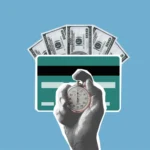Recession is a tough time for many individuals, especially if one is trying to stay afloat and use their savings wisely. While caution is necessary for every aspect, recession-proofing your savings is possible with certain steps. This article discusses tips on managing savings during a recession to make them more stable and worthwhile.
Here are seven tips on managing your savings during a recession.
1. Maintain Your Emergency Fund
Maintaining your emergency money during a recession is one of the most crucial things you can do. Your emergency fund might assist you in paying your bills until you get back on your feet if you lose your job or face other financial difficulties. Experts’ standard advice is to reserve three to six months’ living costs. If you have one, avoid using your emergency fund on non-essential items.
2. Put Your Savings in a High-Yield Savings Account
Although savings account interest rates are often low, switching to a high-yield savings account may allow you to earn a better interest rate. Compared to ordinary savings accounts, these accounts often provide greater interest rates but may also have extra limitations or higher minimum balance requirements.
3. Invest Diversely
Consider diversifying your assets if you have a sizeable quantity of funds you’re prepared to put into them. Doing so may reduce your risk and safeguard your money from market swings. Consider buying various stocks, bonds, and other assets that fit your risk tolerance and investment objectives.
4. Be Wary of Uncertain Investments
Putting money into high-risk, high-reward investments might be tempting during a recession, but it’s crucial to exercise caution. These investments may not yield the expected results and might be erratic. Make more cautious investments that fit your risk appetite and investing objectives.
5. Check Your Budget
It’s crucial to monitor your expenditures and budget during a recession. Find strategies to save costs, such as limiting discretionary spending or haggling over prices with service providers. Increase your savings or emergency fund by cutting back on your costs.
6. Consider Repaying High-Interest Debt
Consider using some of your funds to pay off any high-interest debt, such as credit card debt. Lowering the total interest, you’ll have to pay in the long term can help you save money.
7. Consult a Professional
If you’re uncertain about what to do with your funds during a recession, consider asking a financial expert for guidance. They may offer tailored advice depending on your financial circumstances and assist you in making wise choices about your assets and savings.
Final Thoughts
Even though a recession might be difficult, there are things you can do to safeguard your finances. You can protect your money during difficult economic times by maintaining your emergency fund, diversifying your investments, and exercising caution when making riskier investments. Always review your spending plan; if you’re unclear about what to do with your money, see an expert.





